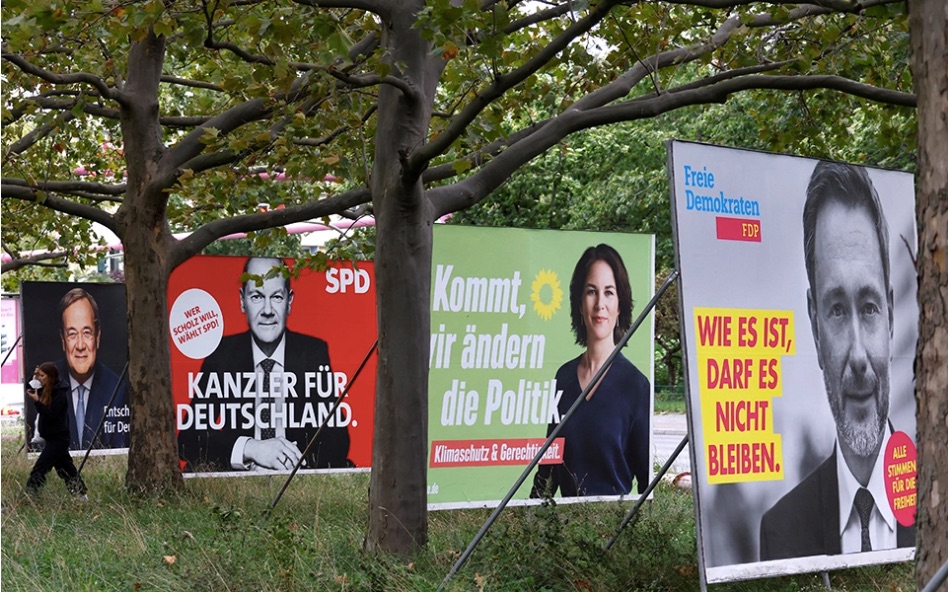The new German government and Greece

Soon Greece will have to work with a new government in Berlin. All indications are that it is likely to include the Greens and the Free Democrats (FDP), the third and fourth party in Sunday’s elections.
Ideologically diverse, they will go from being in the opposition to assuming an important role that will involve making decisions, some which will inevitably concern Greece. In one sense, these two parties – that will govern either along with the winners, the Social Democrats (SPD), or the Christian Democrats (CDU) who came in second – also represent the future of the political system in Europe’s most powerful country, as together they amassed nearly half the country’s vote, with the FDP taking 23% and the Greens 22% among the young.
There are many issues that interest Greece and involve Germany to a significant degree, the three most important ones being relations with Turkey, migration and overall European Union economic and fiscal policy. Hence, the makeup of the new government in Berlin matters a lot, and in this context the policy approaches of the Greens and the FDP, both of whom seem to be necessary components of the new government.
Tolerance for Turkey’s antics will likely be less in a government that includes the Greens, especially if they – who were in favor of freezing the sale of submarines to Ankara because of its aggressive behavior toward Athens – take over at the Foreign Ministry.
Of course, German investment activity in Turkey and, by extension, the exposure of German companies to the latter’s economy is quite substantial and it will not be easy for any German government to pull out. At the same time, no German politician can ignore the significant number of people of Turkish nationality or origin in the country.
As far as the management of refugee and migrant flows goes, the Greens (and the SPD) take a more progressive approach with respect to accepting a significant number in Germany, but also to how frontline states like Greece should bear the burden.
On the other hand, the FDP, the other likely coalition partner, is less lenient on migration and wants to see first-entry countries shouldering even more responsibility. What matters to us is where the internal negotiations on this sensitive and very important subject for us end up.
With regard to the economy – both domestic and European – the Greens (like the Social Democrats) are in favor of a more lenient fiscal policy than the one pursued by outgoing German Chancellor Angela Merkel and former finance minister Wolfgang Schaeuble, which had calculable consequences for the Greek economy. Here too the negotiations over policy with the Free Democrats will be intense and a lot will depend on whether the latter will take over the Finance Ministry as they would like.
Economic policy will have to address issues such as the role of public investments, prospects for borrowing, eurobonds, and a series of other decisions that will have a direct or indirect impact on Greece.
Europe as a whole will be closely watching the developments in Germany over the next few weeks, though the other end of the France-Germany axis even more so, as President Emmanuel Macron is hoping for a common approach to European fiscal policy, something that the Greens are in favor of, but not the FDP.
The ideological background of the new coalition government will evidently affect the big issues that concern Germany right now, from climate change and taxes to the limits of austerity. However, given the size of the German economy and the starring role it plays on a Europe-wide level, what happens in Berlin will affect the entire continent and, of course, Greece.





